Sayran Barzani, whose paternal grandfather was a peshmerga fighter who died during the First Iraqi-Kurdish War in the 1960s, was born and raised in Dallas, Texas, yet speaks Kurdish fluently. Her parents, who both immigrated to the United States separately in the 1970s and met in Nashville, played a vital role in her upbringing by introducing her to the language, culture, traditions, and history of Kurdistan at a very young age.
After graduating from university with a degree in International Studies with a focus on World Development in the Middle East and North Africa region, Sayran relocated to Los Angeles, California. There she founded her jewelry brand, Sayran, which has grown into a success, with numerous celebrities adoring her pieces. Through her accessories and jewelry, she aims to showcase her Kurdish heritage while being influenced by her upbringing in the United States.
In an exclusive interview with Kurdistan Chronicle, Sayran discussed her family’s heritage, the role of Kurdistan in her work, and the joys of Kurdish culture that she feels connected to even living so far away.
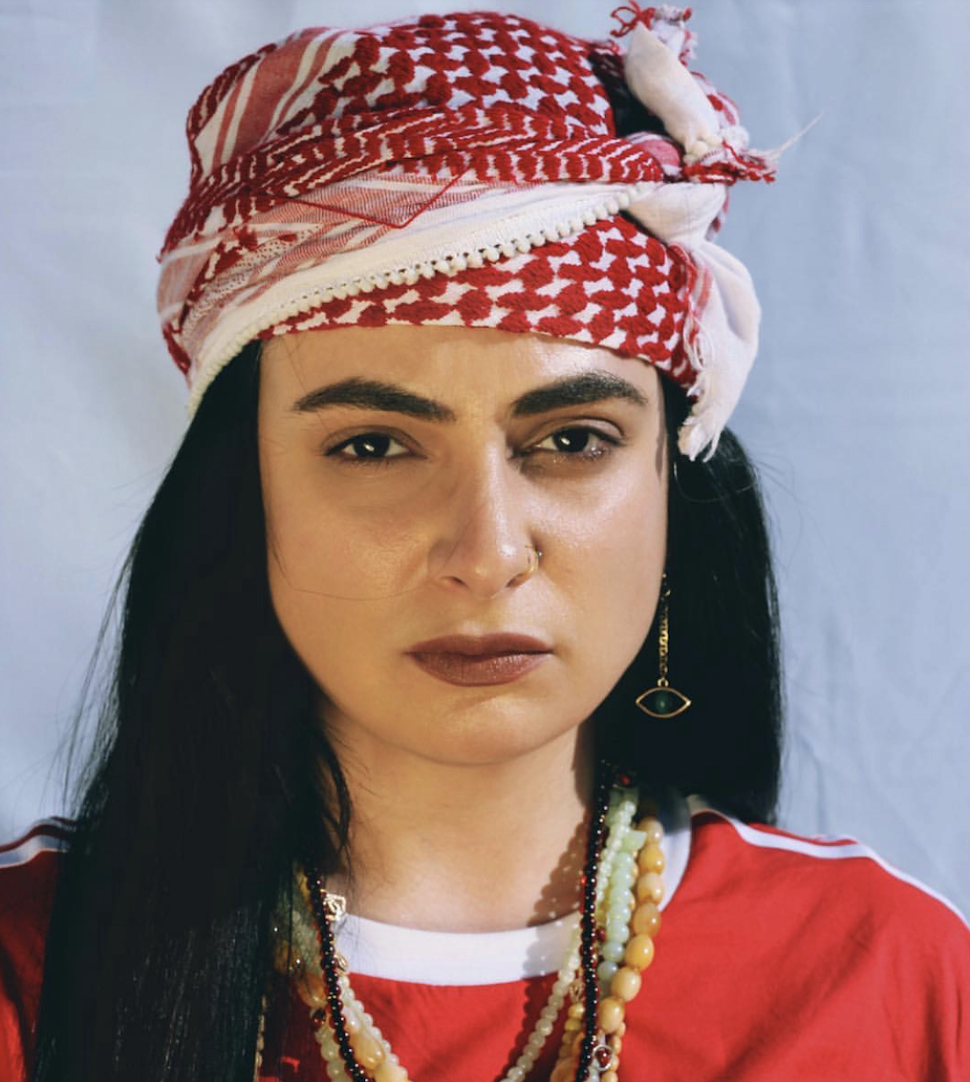
Remembering her Kurdish roots
Sayran started the interview by focusing on how her family’s heritage has had a profound impact on her. Her maternal grandfather, Jamal Bekhtyar, was an artist from Sulaymaniyah and used his art to depict what was happening to the Kurds under the Ba’ath regime. One of his pieces depicting the bombing of Qaladiza in 1974 resulted in him being persecuted by the regime, which prompted Sayran’s maternal family to flee Kurdistan and ultimately attain political asylum in the United States.
Her paternal grandfather, Siyamend Barzani, was from the village of Mergasor in the Barzan region and was one of the 500 men who traveled to the Soviet Union after the fall of Republic of Mahabad. “Both my grandfathers have played pivotal roles in my life, and through their influence, I have gained the strength to always support Kurdistan, regardless of how far away I may be,” Sayran said.
Meanwhile, she credits her grandmother for playing a significant role in her upbringing and for teaching her Kurdish. “My grandmother is such a proud Kurdish woman; to this day, you will see her at protests in San Diego in traditional clothing advocating for Kurdistan,” she remarked.
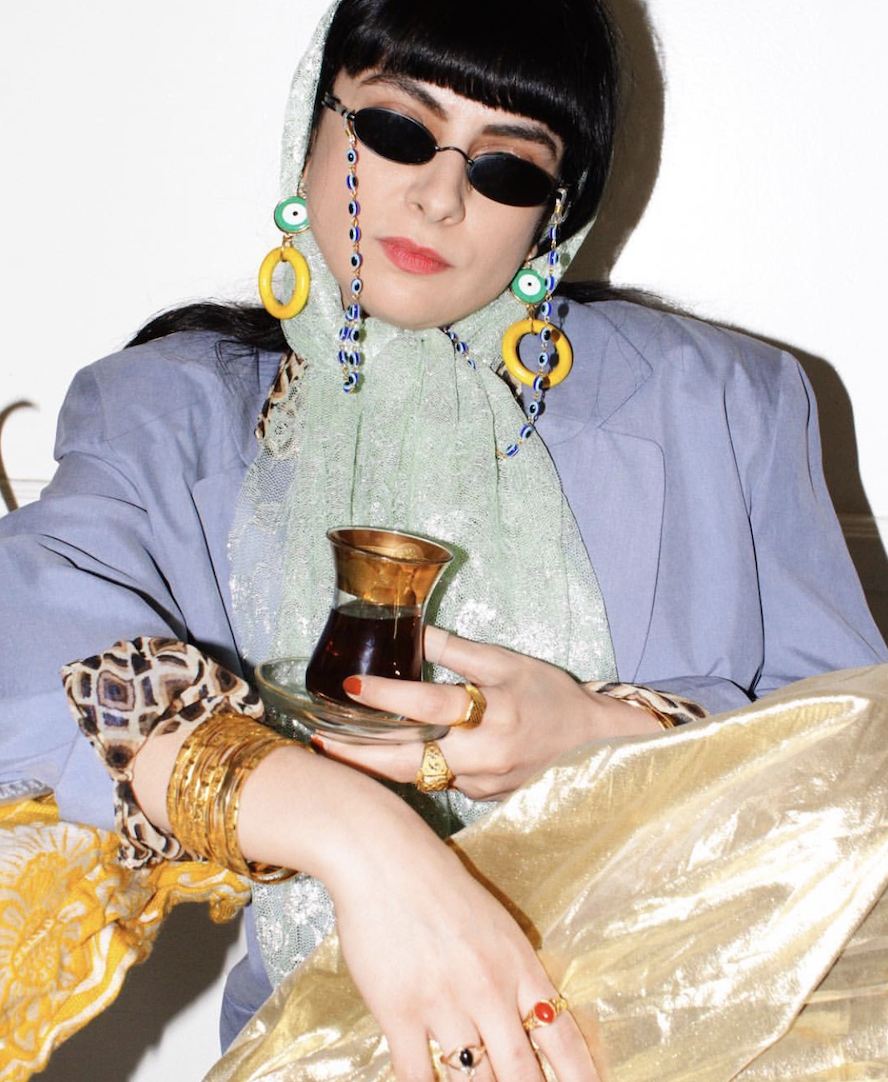
Though Sayran has lived in Los Angeles for the last 12 years, she relocated back to Texas this year to be closer to her family. She is eagerly anticipating the arrival of her first child by the end of this year and is filled with excitement about becoming a mother. “It is extremely important to me to make sure my children grow up knowing where they come from,” she said.
In Kurdish, “sayran” means picnic, and the jewelry artist similarly intends to give her baby a Kurdish name, which dovetails with her vision for her work. “Through my work, I create in order to highlight the beauty of the region and shed more light on the Kurdish people and our culture,” Sayran explained.
One of the most challenging questions that the Kurdish diaspora grapples with is a lack of knowledge about Kurdistan. Sayran recalls at the age of 10 attempting to explain where it is to her peers, only to feel disheartened that it was not marked on the map. “As an adult, I take immense pride in my Kurdish roots. Being Kurdish is challenging due to the constant pain and erasure our people endure daily, but I genuinely believe that being Kurdish is a sacred gift,” she told Kurdistan Chronicle.
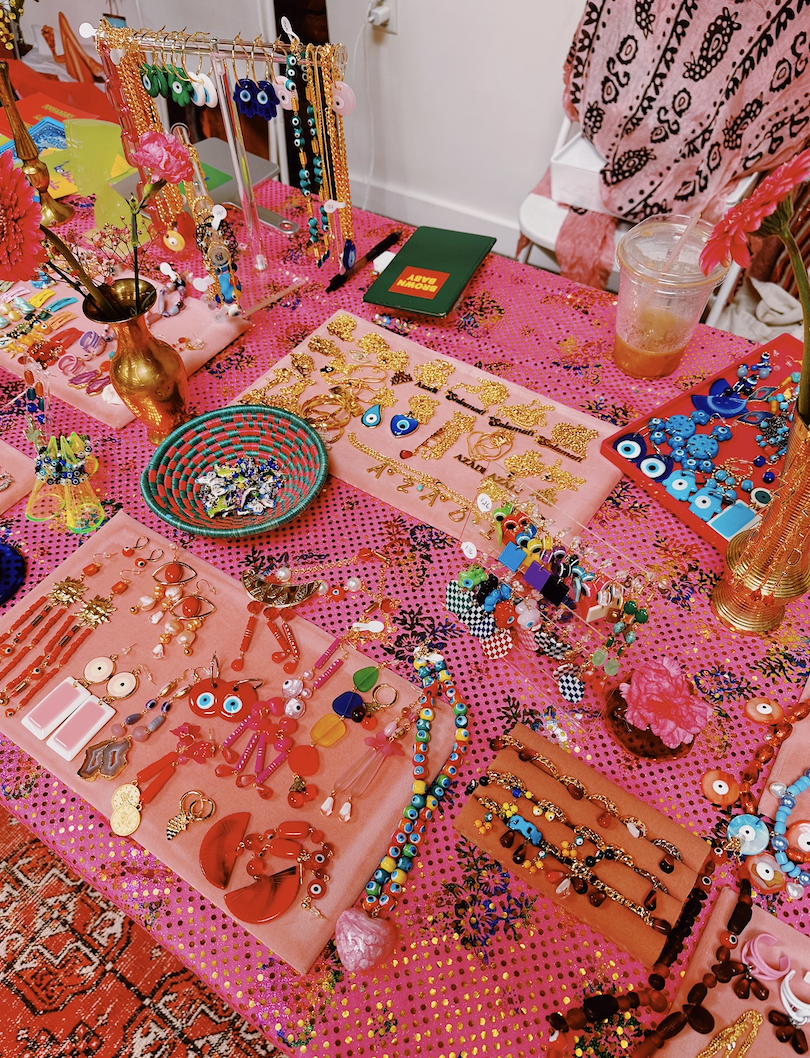
Food is an important element of Sayran’s connection with being Kurdish. “I love all Kurdish food, especially yaprakh, kuba and shifta, the so-called big three. My mom makes some of the best Kurdish food,” she said. She also mentioned her love for the popular dish shilay qaysi (apricot soup) that her mother makes every Eid – a tradition many Kurds adhere to.
Sayran also enjoys listening to all kinds of Kurdish music, but lately she has been more drawn to classical music introduced to her by her father. She enjoys listening to artists like Ayse San, Sehriban, Mihemed Arif, and Dashni Morad, and occasionally listens to Jamshid around Newroz.
Sayran was able to visit Kurdistan for the first time in 2004, a trip encouraged by her parents to deepen her connection with her homeland. She visited again in 2023 for several months. “I spent most of my time in my father’s village with relatives. It’s just so special to be able to sit with family and be fully present in conversations that sometimes revolve around the different flavors of cantaloupe. In the United States, everything is constantly moving so fast that it’s hard to enjoy moments like that, where you’re just there to be together, drink endless cups of tea, eat cucumbers, and talk about everything and nothing all at once,” she said.
“Now, as an adult I understand so much why my parents were so adamant about speaking Kurdish in the house, because the enemy of our lands wishes for the day we forget our mother tongue, our values, our traditions, our roots. My father always said, ‘don’t forget your roots,’ and I echo that in my work, we must all remember our roots,” she said.
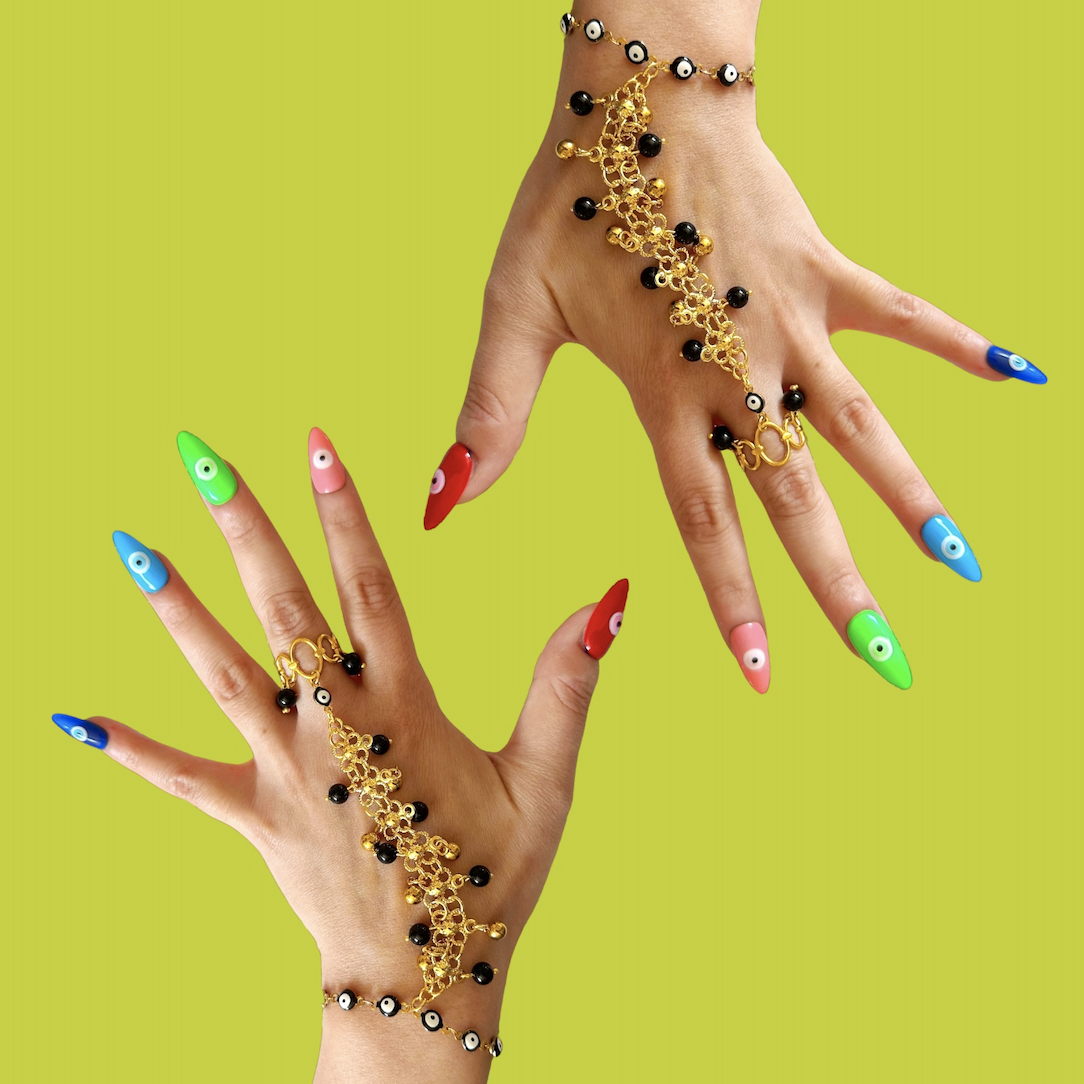
Jewelry and the diaspora
Sayran started designing in late 2014 and officially launched her business in 2016. “I initially started it because I felt like the accessories space was lacking in the kind of jewelry I wanted, jewelry that represents my Kurdish roots but is influenced by the West. Traditional symbolism with a twist, in other words,” she told Kurdistan Chronicle.
“My jewelry is very colorful, using symbols like the evil eye, pomegranates, and specific lettering, as well as plenty of gold. Jewelry isn’t merely an accessory, it’s a means of expressing yourself without the needs for words,” she added.
Sayran has made significant strides in her career, having appeared in Teen Vogue and been featured in several music videos this year, including those of Raveena Aurora and Elyanna, as well as Merzi’s “Destim Bigri.” Reflecting on her journey, Sayran expressed disbelief at achieving such recognition. “Never in my wildest dreams would I have imagined being in magazines or collaborating with big musicians on a global scale.”
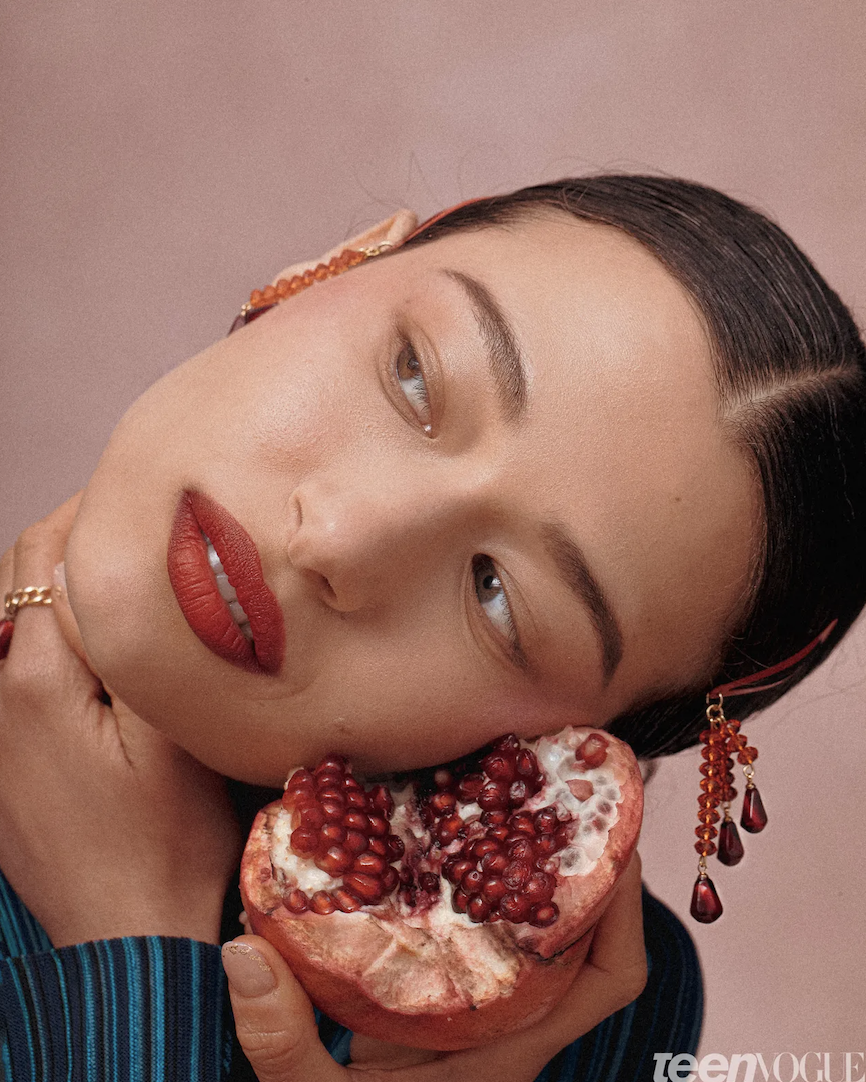
Sayran emphasized the importance of creating a representation that not only embodied her identity, but also resonated with many others, particularly those in the diaspora who seek a connection to their roots while still feeling a sense of belonging to their present identity. “I realized that with or without the recognition of statehood by outsiders, we are still a nation. We are still a people with a distinct and beautiful culture who have stood firmly on our lands for centuries and no one can take that away,” she said.
Sayran’s latest collection, Homeland, was inspired by her 2023 visit to Kurdistan and is a homage to traditional Kurdish jewelry, “I aimed to showcase the pieces on a remarkable Kurdish woman. Maryam embodies this strength; she is not only a Kurdish writer and poet but also a licensed marriage and family therapist,” she explained.
Sayran is happy to see Kurds taking up space in so many different fields. As a child she never knew a Kurdish person in art, design, or film, and never even dreamed it was possible. “But now we are making our way and making it known on a global scale,” she said.
Looking ahead, Sayran expressed her eagerness to collaborate with more Kurdish artists and mentioned her ambition to launch a line of home goods inspired by her cultural heritage, marking it as one of her next goals for her brand. She is eagerly anticipating a forthcoming collaboration with another Kurdish artist. “We are just waiting for the right moment,” she noted.
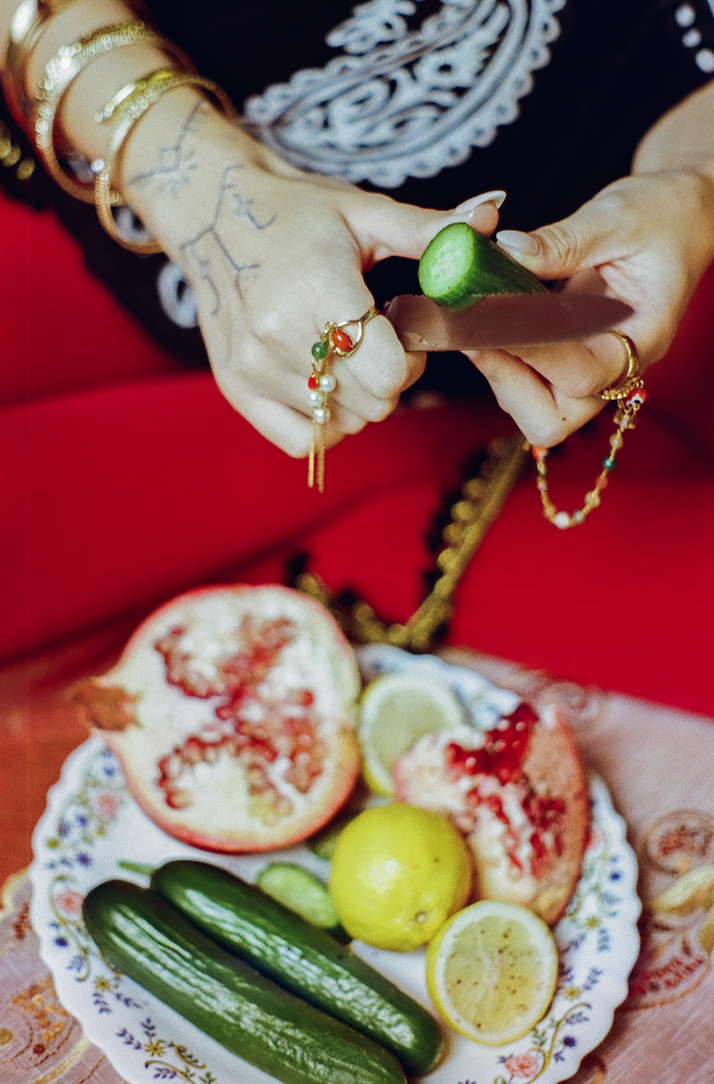
Humanitarian spirit
The Kurdish community has a longstanding reputation for its charitable initiatives and hospitality. In times of crisis such as the ongoing conflicts in Syria and Iraq, as well as natural disasters in Turkiye, they quickly respond to provide aid to those in need.
Sayran, like many others in the Kurdish community, embodies this spirit of generosity and care for others. She has contributed her efforts to several mutual aid funds and the Palestine Children’s Relief Fund, motivated by the urgent and distressing situation in Gaza, particularly concerning the impact on children who should never have to endure such hardships. Additionally, she is currently engaged in a charitable initiative for the Hengaw Organization for Human Rights in Eastern Kurdistan, where all proceeds from a specific piece in her Azadi (Freedom) collection will be donated in support of the cause.
She also serves as a trustee for the Lotus Flower, an organization based in the Kurdistan Region, founded by Taban Shoresh, a survivor of Saddam Hussein’s genocide campaign. She has collaborated closely with the Lotus Flower on numerous fundraising initiatives aimed at supporting displaced women and children, whose plight becomes increasingly urgent each day.
In addition to her work with the Lotus Flower, she has also raised funds for various causes, including the Kurdish Red Crescent in Western Kurdistan (northeastern Syria), as well as humanitarian efforts in Armenia, Afghanistan, and Lebanon following the devastating explosion in Beirut. She has also worked with local communities in Los Angeles. “I strive to assist wherever I feel called to help, without discrimination based on region,” she said.
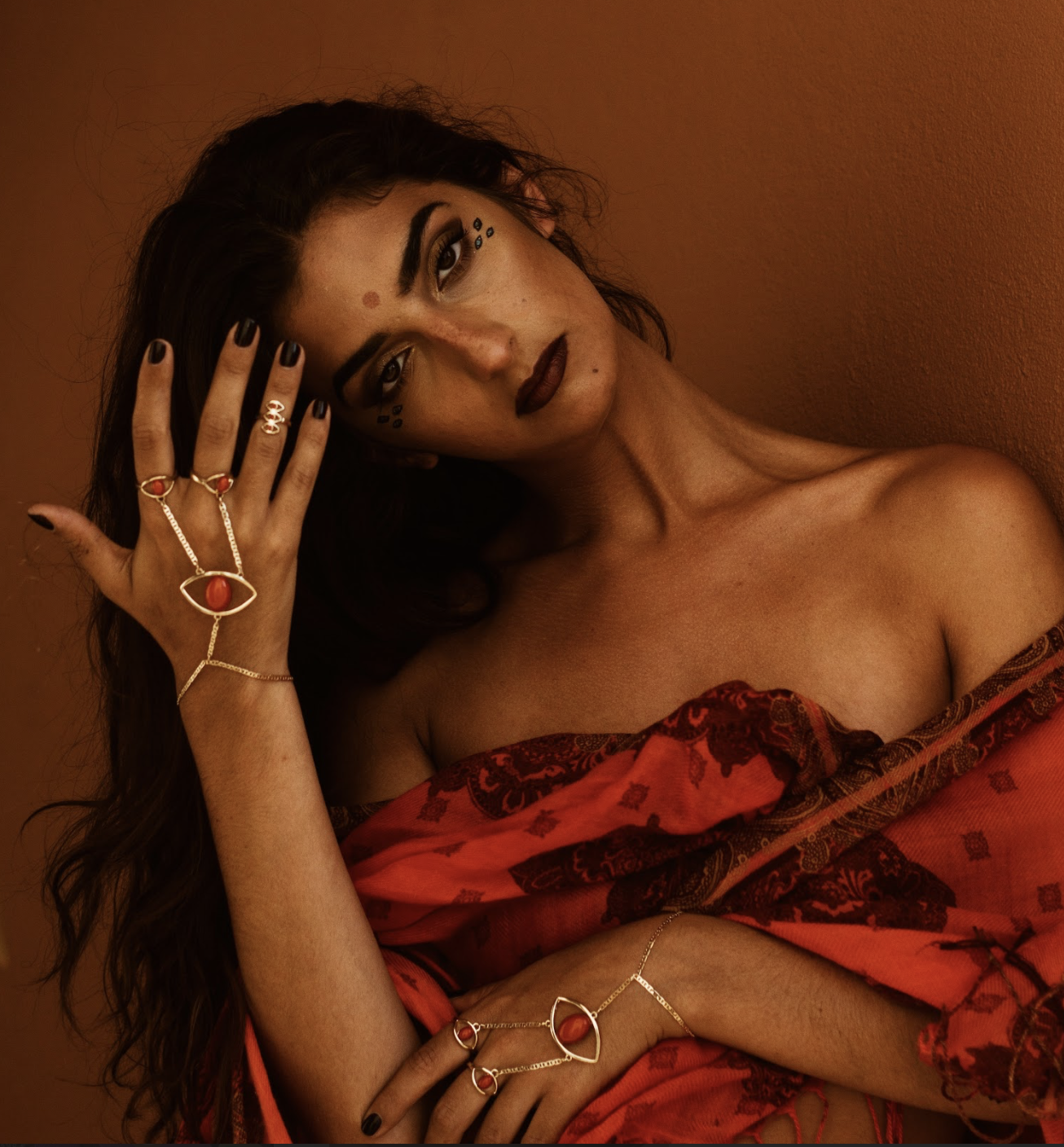
Goran Shakhawan is a Kurdish-American journalist and author based in the United States. He has covered news for several Kurdish news outlets and was a former senior correspondent for Kurdistan24 in Erbil and Washington D.C. He has published several books in Kurdish.

